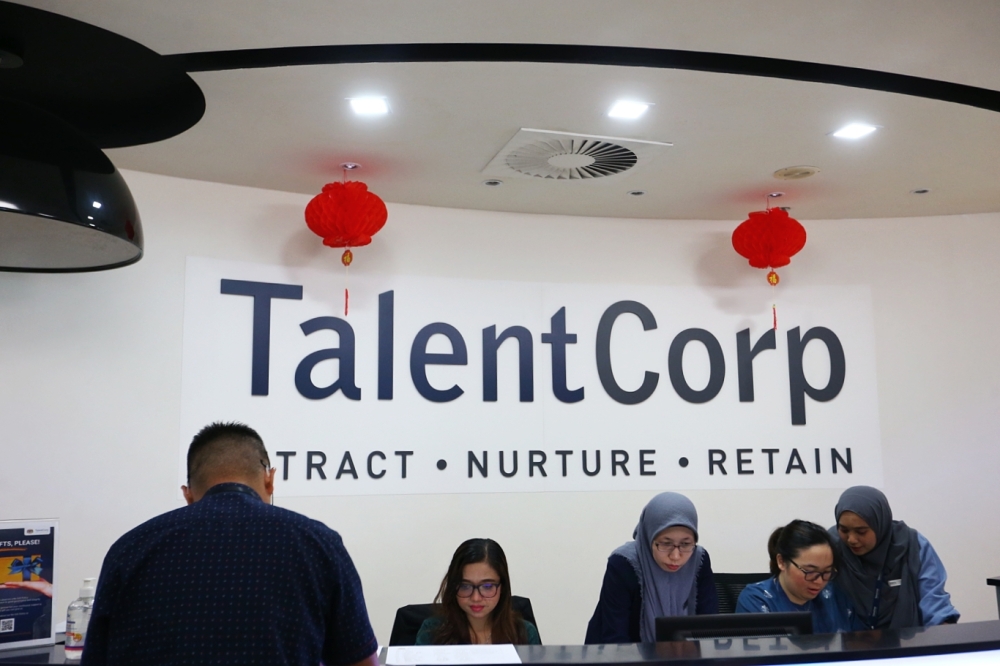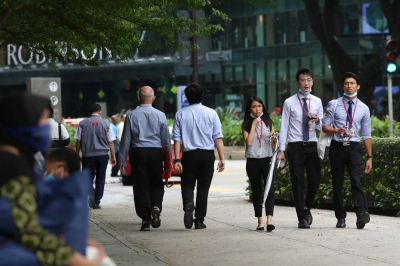KUALA LUMPUR, July 29 — Malaysia’s chronic brain drain came back under the spotlight after a federal lawmaker mistranslated the term to “longkang otak” in Parliament earlier this month.
But the phenomenon is no laughing matter, with Minister in the Prime Minister’s Department (Federal Territories) Dr Zaliha Mustafa subsequently suggesting a registry to measure the full severity of the problem.
While there are no official figures for tracking migration worldwide, estimates from the World Bank and United Nations put the number of people living outside their home countries to be between 215 million and 281 million globally, as of 2022.
This meant around 3.6 per cent of the world’s population reside outside of their country of birth.
What is brain drain?
Brain drain is not simple worker migration, but refers to the phenomenon where a country bleeds educated and skilled talent to other countries or regions.
This typically happens because these skilled workers are able to earn more abroad, have more access to opportunity, enjoy higher standards of living, or get more favourable treatment.
The corollary is that their home country is then deprived of the same skill and talent that could be put towards its progress, often after having invested in the education of the departing workers.
Is this a serious problem here?
The issue was severe enough that in 2011, the government formed Talent Corporation Malaysia Berhad (TalentCorp) specifically to address the brain drain.
TalentCorp, which comes under the Prime Minister’s Department, is tasked with crafting strategies to lure Malaysians back to the country by developing Malaysia into a dynamic and market-driven global talent hub.
How bad is it?
According to TalentCorp group chief executive officer Thomas Mathew, approximately 1.86 million Malaysians left the country in the past five decades.
Extrapolated, this represents 5.6 per cent of the population, significantly higher than the global average of around 3.6 per cent.
A recent Department of Statistics Malaysia (DOSM) study released on February 19 on Malaysian Citizens Working in Singapore and Brunei in 2022 and 2023 showed that Malaysians in Singapore are primarily skilled (39 per cent) and semi-skilled (35 per cent) workers.
The study showed that the migration pattern to Brunei is somewhat similar, with a higher percentage of skilled (68 per cent) and semi-skilled (24.1 per cent) workers.
Which countries are gaining the most from Malaysia’s brain drain?
According to TalentCorp, the top five preferred countries for Malaysians who working abroad were:
- Singapore
- Australia
- United States of America
- United Kingdom
- Canada
“Notably, 3.3 per cent of the total Malaysian population has migrated to Singapore, amounting to 1.13 million individuals, which constitutes 60 per cent of the Malaysian diaspora,” TalentCorp’s Thomas told Malay Mail.

An undated file photograph shows the TalentCorp logo at its office in Kuala Lumpur. — Picture by Ahmad Zamzahuri
What causes brain drain?
According to the World Bank, the main factors of ‘Brain Drain’ includes:
- Economic incentives (Attractive salaries & benefits, High monetary values)
- Social disincentives (Better career prospects and Lifestyle)
Citing the 2019 Hays Asia Overseas Returnees Report, Thomas said that Malaysians have stated mainly four challenges that they face when applying for job, which eventually leads to brain drain.
These were:
- Unsuitable remuneration – difference in remuneration and benefits compared to what they receive abroad.
- Unsuitable job opportunities – difficult to find job opportunities that match their expertise and qualifications.
- Unfamiliar with local job market conditions; and
- Difficult for foreign spouse and children to adapt to the culture.
“This is where TalentCorp plays important role where through our Malaysia@Heart or MyHeart initiative, which facilitates not only returning Malaysians, but also encourages members of the Malaysian diaspora to contribute their expertise to the country’s economic development from abroad,” said Thomas.
What is the government doing about this?
In September last year, Prime Minister Datuk Seri Anwar Ibrahim said that the government’s plans to address brain drain by attracting skilled Malaysians to return and contribute to the country.
Anwar said the relevant ministries including International Trade and Industry Ministry (Miti), Economy Ministry and Higher Education Ministry are currently engaging those who can contribute to return and be placed at specific areas of competence to help Malaysia.
On July 3, Minister in the Prime Minister’s Department (Federal Territories) Dr Zaliha Mustafa also proposed to develop a system to track the number of Malaysians working abroad to address brain drain.
Dr Zaliha also said the government has implemented several measures to curb brain drain, including a wage hike for civil servants effective in December.
Meanwhile, Thomas said that the Malaysia@Heart or MyHeart initiative by TalentCorp facilitates not only returning Malaysians, but also encourages members of the Malaysian diaspora to contribute their expertise to the country’s economic development from abroad.
“The MyHeart initiative is a strategic approach to reach out to our diaspora community, where they may have a sense and purpose to collaborate on nation-building projects,” he said.
“We also announced the MyHeart Innovate, a three-month programme, for Malaysians abroad who wish to establish sustainable startups in Malaysia,” he added.
Thomas also encouraged employers in the country to adopt best global work practices such as like flexible work arrangements, which could attract skilled talents.

